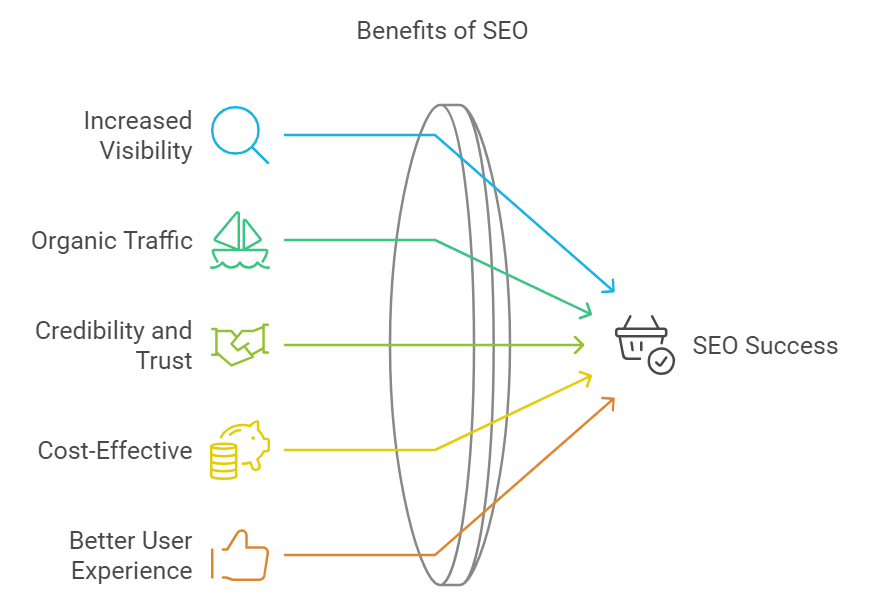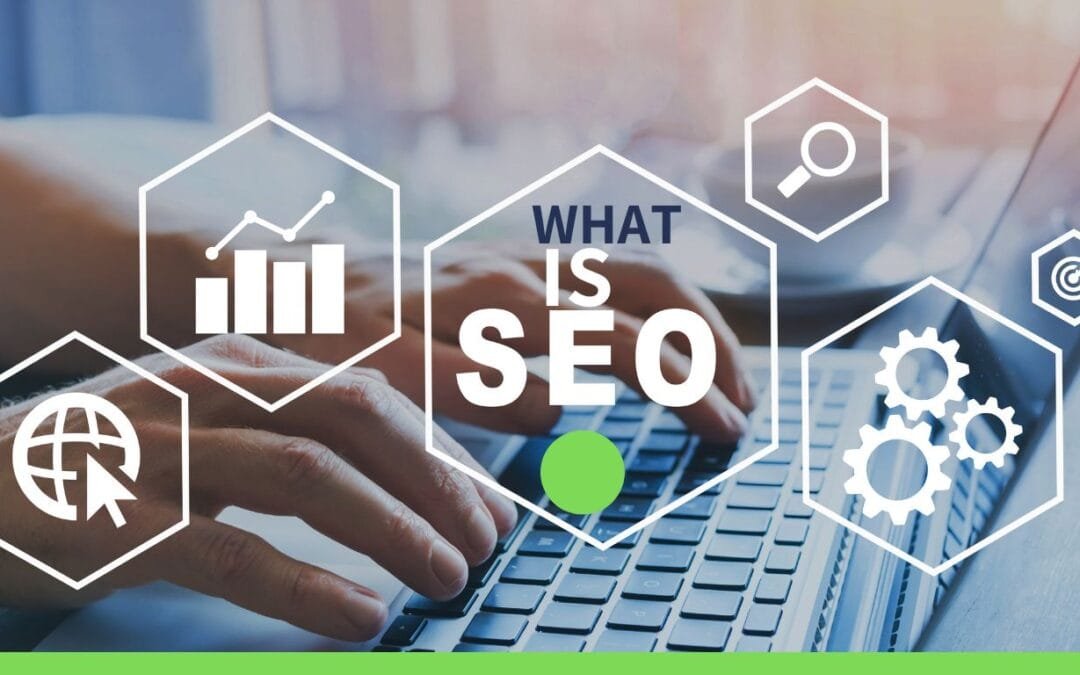What is SEO? Let’s break down SEO (Search Engine Optimization) in simple terms, with some detailed explanations and helpful analogies to make it easier to understand.
What is SEO?
Imagine you own a bookstore in a huge city with hundreds of other bookstores. You want people who are looking for books to find your store. But how do you stand out when people don’t know you exist yet? This is where SEO comes in. SEO is like making a bright, flashy sign and giving people good directions, so when they search for a book, your store is easy to find. Except, instead of a physical store, SEO helps your website stand out in a search engine like Google.
SEO is the process of improving your website to get more organic (non-paid) traffic from search engines. Search engines like Google or Bing use complex algorithms to decide which websites to show when someone searches for something. SEO is about optimizing your website to make sure the search engine understands it, ranks it higher, and ultimately shows it to users searching for things relevant to your content.
How Search Engines Work (Simplified)
Let’s think of a search engine like a librarian for the internet. When you ask a librarian to find a book, they don’t just run to the shelves and grab something random. They first figure out what kind of book you’re asking for, then they use their knowledge of the library’s catalog to find the best match. Search engines work in a similar way, but instead of books, they catalog and organize billions of websites, deciding which ones best match what people are searching for.
The search engine algorithm is like the librarian’s brain. It takes into account many factors to decide which website is most relevant and should be shown first.
The Key Components of SEO
1- Keywords:
Keywords are like the language search engines and people use to find information. If your bookstore sells science fiction books, you want to make sure words like “science fiction,” “sci-fi,” and even “space adventure books” are mentioned in your store’s description, so people know what you offer.
Search engines look at the keywords on your website to figure out what your site is about. You want to use the right keywords that match what people are searching for.
Analogy: Think of keywords like clues you give to the search engine librarian. If your website has the right clues (keywords), it makes it easier for the search engine to recommend your website to people who want what you offer.
2- On-Page SEO:
This is all the stuff you can do on your own website to make it search engine-friendly. It’s like cleaning up your store so customers can easily find what they’re looking for.
- Title Tags and Meta Descriptions: These are the headlines and short descriptions that show up in search results. They should be clear and have the important keywords people might search for.
- Headings and Structure: Just like a book has chapters, your website should be well-organized with headings (H1, H2, etc.) to help both search engines and users understand the structure of your content.
- Content: Your content is the most important part. Search engines love fresh, informative, and unique content. It’s like making sure your bookstore has a great selection of the latest books.
3- Off-Page SEO:
Off-Page SEO: Off-page SEO is like the reputation your store has around town. Even if your store is clean and well-organized, it helps if other people are talking about it and recommending it.
- Backlinks: These are links from other websites that point to your website. It’s like getting a recommendation from a well-known person. The more quality websites that link to yours, the more trustworthy search engines think you are.
Analogy: Think of backlinks like word-of-mouth recommendations for your website. If a popular website links to you, it’s like a celebrity recommending your store.
4 – Technical SEO:
Technical SEO: This is the behind-the-scenes stuff that makes sure your website runs smoothly. Imagine your bookstore is hard to navigate, has broken shelves, or takes forever to get to. People would leave and look for another store.
- Page Speed: How fast your website loads. If your site is slow, people (and search engines) won’t like it.
- Mobile-Friendliness: More and more people search on their phones. Your website should be easy to use on all devices.
- Security (HTTPS): Having a secure site makes sure user information is safe, and search engines prioritize safe websites.
Analogy: Think of technical SEO like making sure your bookstore has good lighting, clean aisles, and that the door isn’t locked when customers try to enter.
5 – User Experience (UX):
User Experience (UX): Even though SEO is mostly about search engines, you should also make sure that when people visit your site, they have a good experience. Imagine someone enters your store but finds it confusing or too cluttered—they might leave and never come back.
- Bounce Rate: This is when people visit your site and leave quickly. It’s like someone walking into your store, looking around for two seconds, and leaving. It’s a sign that maybe your store (or website) isn’t what they expected, or it’s hard to navigate.
Analogy: Good UX is like making sure your bookstore has comfy chairs, clear signs, and helpful staff. If visitors have a good experience, they’ll stay longer and might come back.

How SEO Helps Your Website Grow
In the long term, SEO is like planting seeds in a garden. You might not see instant results, but as you keep improving your website and adding great content, your site will start to appear higher in search results. This means more visitors, and eventually, more customers.
Gauging Your Understanding of SEO
Before diving deeper, let’s gauge your familiarity with some of the key technical concepts:
- Keywords and how they work in search engines.
- The idea behind on-page SEO like title tags, headings, and content structure.
- What you know about off-page SEO like backlinks and website reputation.
- Technical SEO, which involves things like page speed and mobile-friendliness.
To Read More About What is SEO?

Enjoy
20% Off

